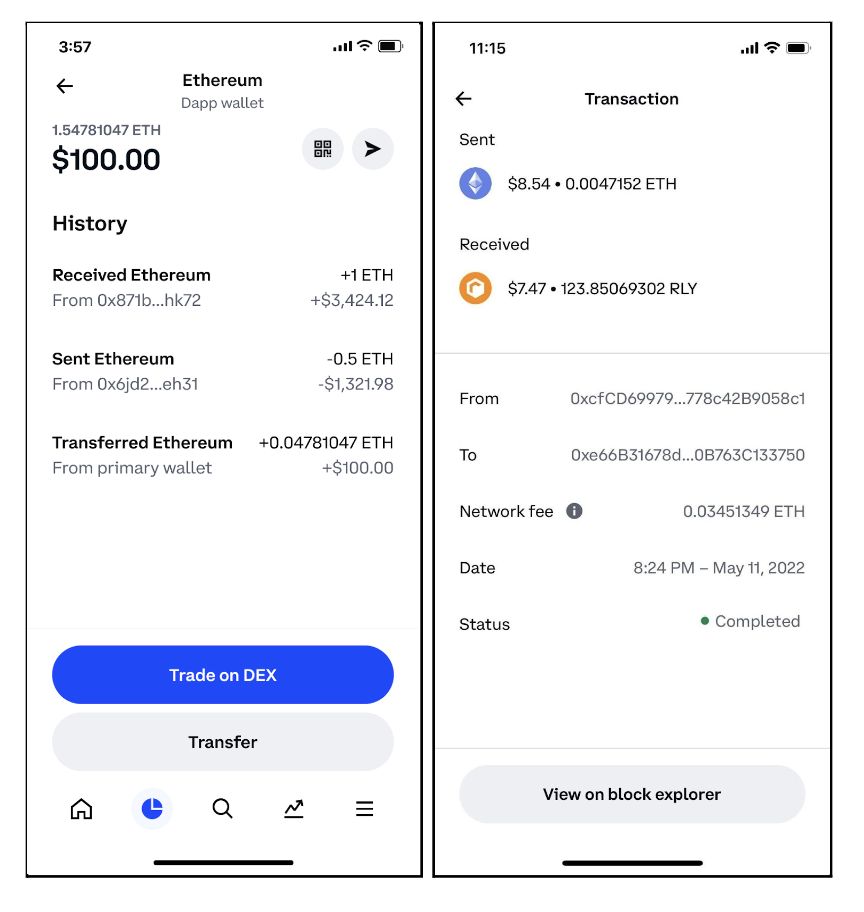Ethereum (ETH) is the primary currency of the Ethereum network and is used to pay network (gas) fees on the network. In order to complete DEX trades, you’ll need ETH to pay the corresponding transaction fees.
There are two different types of fees associated with our Trade on DEX feature:
Network or Gas fees are the fees paid to miners in order to process and validate a transaction on the blockchain. On the Ethereum blockchain, you need ETH to pay for gas fees. Gas is the unit of measure for how much computational work is required to process transactions and deploy smart contracts on the Ethereum network. Coinbase does not profit from these fees. To learn more about network fees, view the help center article here.
Coinbase transaction fees. Coinbase charges a nominal fee for the transaction on the decentralized exchange. This fee helps Coinbase maintain the platform & develop new features.
You can view the fee for a specific transaction by visiting the transactions page in your dapp wallet and clicking on a specific transaction to view more details.

Network fees are charged in the following cases:
When transferring funds from your primary custodial wallet on Coinbase to your dapp wallet or other external wallets (Coinbase does not charge a transaction fee in this case)
When executing DEX trades from your dapp wallet
When transferring funds from your dapp wallet to any custodial or non-custodial wallet
Network fees are not charged in the following cases:
If you are sending funds from one custodial wallet to another on Coinbase.
Under EIP-1559, the latest proposal for managing gas fees, users pay a base fee, which is the minimum amount of gas required to include a transaction in the next block, and a priority fee, which is basically a tip to miners. You can set the value of your priority fee based on how quickly you want your transaction to go through.
Gas fees are directly tied to how many users are currently transacting on the Ethereum network, the more transactions are being submitted to the network, the greater the congestion and therefore the higher the gas fees.
The primary cause of higher gas fees is network congestion and ‘gas guzzlers’. Gas guzzlers are applications that consume the most amount of gas at a given period of time.
The traffic of transactions on Ethereum varies throughout the day. At times, you may see a lower gas fee for the same transaction that was costing you more ETH a few hours prior.
You can potentially minimize the cost of gas fees by waiting for times where there is the least amount of user traffic on the Ethereum network to execute a transaction.
A common problem that you may see or have seen is transactions failing with an out of gas error. To avoid another "out of gas" error, you will need to increase the gas limit of your next transaction. The gas limit is the maximum amount of gas you are willing to consume in order to process a transaction.
You always want to ensure that you include a gas limit high enough to complete your transaction. To learn more, visit our help center article - Adjusting miner fees.